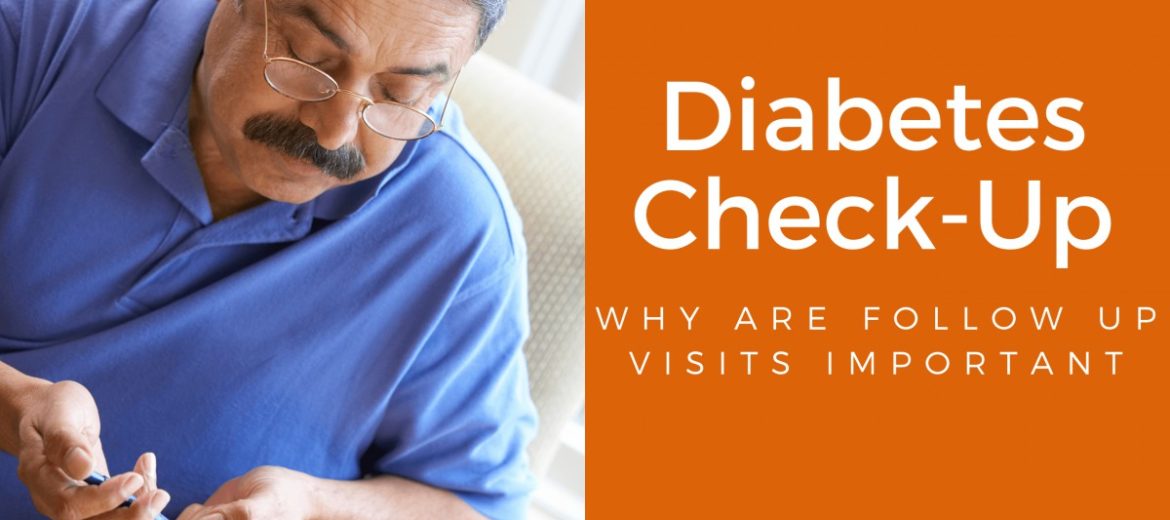It is widely accepted by endocrinologists across the world that routine checkups are a vital part of diabetes care and management. A diabetes check-up, however, is often easily overlooked by newer patients.
Imran Roy, 47, was diagnosed with type-2 diabetes a few months ago. He came in for an initial consultation with Dr. Silviya Irene, Endocrinologist at Sitaram Bhartia Hospital’s Diabetes Center (South Delhi) on his wife’s insistence.
He was introduced to the team of consultants and educators who worked together on designing a treatment plan for him. He was asked to come back in two months for a follow-up diabetes check-up.
“I left the consultation feeling confident that I would be able to regulate my sugars,” recalls Imran.
Six months after his first check-up, Imran noticed he had begun to lose weight fast despite a sedentary lifestyle. Unsure of what to do next, he went back to Dr. Silviya for advice. At the check-up, it was discovered that his HbA1c levels had shot up and he was counselled on the importance of routine diabetes check-ups.
Here are 4 reasons people with diabetes, such as Imran, are encouraged to regularly consult their doctor!
1. Monitoring Your Overall Health
“People with diabetes are recommended they come in for follow-up diabetes check-up every 3 to 4 months, depending upon their blood sugar control,” said Dr. Silviya.
A typical follow-up includes various blood tests for diabetes, such as HbA1c that is used to measure the 3 monthly average of blood glucose levels. The recommended range of HbA1c depends on age and comorbidities but is usually advised to be less than 7.
In addition to this, the doctor also measures cholesterol levels and blood pressure (BP) to rule out any cardiovascular risks such as heart disease or stroke. Since diabetes puts everyone more at risk of developing heart problems, our dieticians may suggest dietary or lifestyle changes according to your requirements.
Imran’s diet plan was modified to include smaller, more frequent meals in order to help him regain his weight to a healthier level. His cholesterol and BP were within range but his HbA1c levels were at 10, which could have been prevented if he had come in for a check-up earlier.
2. Tracking the Effect of Medication on Sugar Levels
In addition to lifestyle changes, most people with diabetes require medication or insulin to regulate their blood sugar levels. This is why monitoring the effect of medication becomes an important aspect of routine doctor visits.
Dr. Silviya suspected Imran’s health problems were connected to his medication intake as well. Upon further questioning, Imran revealed that he was having trouble adjusting to some medicines. He was immediately switched to alternatives and corrections were made to his dosage as per his body’s requirements.
3. Preventing and Treating Potential Complications Early
People dealing with this condition can often be dismissive towards developing diabetes-associated complications. They might not realise the need for regular check-ups as they do not exhibit any obvious symptoms at first.
“Not only do doctors help you understand the key to optimum diabetes control during regular checkups, but also detect potential risks that can go unnoticed in the initial stages.”
“It is extremely important that we periodically assess the state of your health. Early diagnosis and treatment can potentially reverse these complications after appropriate adjustments are made to your treatment plan.”
Major complications with respect to diabetes to be noted include:
- cardiovascular risk
- nerve damage
- vision loss
- foot problems
- kidney issues
“The rate of complications associated with patients who regularly visit us is markedly low. We can confidently say that proper management of sugar levels correlates to a lower rate of complications.”
“Even if you don’t return to us for a follow-up visit, we would encourage you to get yourself checked elsewhere to ensure your sugars are in control.”
If you have been experiencing similar symptoms then don’t forget to discuss these changes with your doctor immediately. Avoid needless delay and become more involved in your diabetes treatment today!
4. Receiving Expert Guidance On Self-Care
One of the important aspects of diabetes check-ups is also receiving in-depth education regarding your diet, exercise and lifestyle. An examination of your feet and eyes will also be conducted in order to discuss proper diabetes self-care practices.
“A practice we emphasize at the Diabetes Center is the daily inspection of your feet at home. Decreased blood circulation to your lower extremities can cause numbness. You may even notice that wounds take longer than usual to heal. All these signs will be monitored at your diabetes check-up as well.”
Imran was encouraged to reduce damage to his feet in any form. He was suggested he undertake some steps for good foot care:
- Avoid walking barefoot indoors or outdoors
- Wash your feet regularly with soap and lukewarm water
- Avoid keeping your feet wet for long to prevent a fungal infection
- Check your feet periodically for blisters or sores
- Never treat calluses on your own and consult a doctor for suitable treatment
An annual checkup of your eyes will also be advised by your doctor in order to detect possible damage to blood vessels or vision loss. Don’t forget to visit your doctor immediately if you have been dealing with the following symptoms:
- Blurred vision
- Light sensitivity
- Strange blotches or dark spots in vision
Feeling warmed by the whole team’s approach towards patient care, Imran decided to continue his association with us. In fact, he hasn’t been late for any of his diabetes check-ups ever since!


